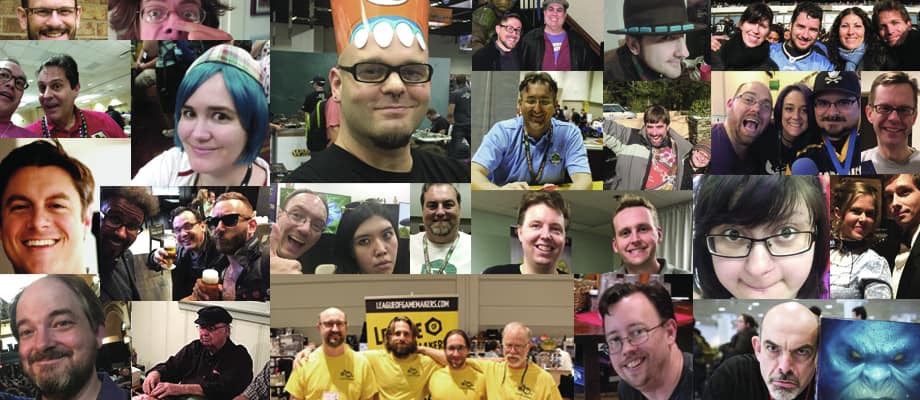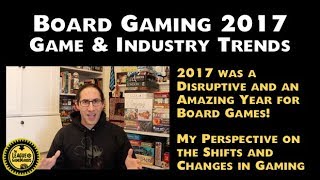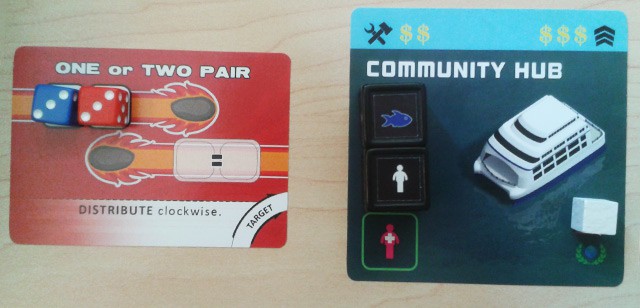
Are game design contests worth it? For the Whirling Derby team, contests have been a cornerstone of our development as self-publishers and designers. We entered three board game contests on The Game Crafter.com in addition to the CAH Deathmatch in 2013, making it to the finals on all of them and winning two. We’re also judging the current Time Challenge Game Crafter Contest, accepting entries now through November 17th.
But what can you REALLY get out of them? Is it realistic to expect to win them and get publisher attention or a thousand backers on Kickstarter? Or do they have even more value?
CONTESTS CAN BE INSPIRATION

“I enjoy the material and mechanics constraints, because I find that it gets me designing with a certain direction in mind that I might not have taken otherwise, and the results are really interesting.”
– Mark Major, Winner of The Game Crafter’s Co-Op and Mystery Challenges, creator of Jupiter Rescue and Sinister
Contests can give you guidelines, and guidelines can give you ideas. When you create a game for a contest, you have to think about the rules and limitations. For contests on The Game Crafter, you have to use their components and services, and there’s often a price cap. These help you create ideas that are marketable as products.
But an interesting thing happens where you think of all the things you could do if only you could include more meeples or dice or cards… For Whirling Derby, the idea of a microgame using a dice drafting mechanic led to the development of two different games in tandem:
- Blazing Spuds, a fun 20-minute dice passing game for The Game Crafter’s Microgame Challenge.
- Oceanica, a more strategic post-apocalyptic game about surviving on a flooding planet, which spring-boarded from those guidelines with custom dice and tiles (currently under publisher consideration.)
And contests are a fantastic way of getting focused. Nobody’s going to give you that hard deadline that some folks need to make a finished project when you’re first starting out. If you’ve been hemming and hawing over a game idea for years, contests are a great tool to get inspired and get yourself in the industry quickly.
CONTESTS CAN BE NETWORKING
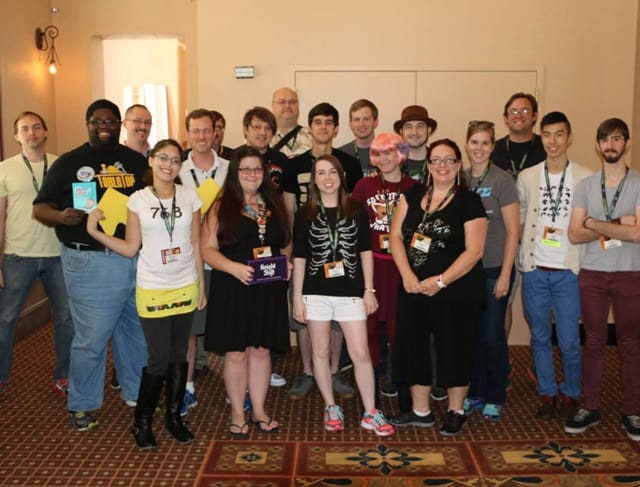
“I’m hoping for some publisher attention (aren’t we all), but in all honesty the best thing I got out of TTDM was the friends and connections.”
– Matt Stockwell, 2014 Cards Against Humanity Tabletop Deathmatch Finalist, creator of Charm City Blues
Contests are a great way to network with the other designers who entered. We learned a lot and met some really awesome people from the Deathmatch and Game Crafter communities, and keep in touch with people way outside our local gaming circles. Many of us reach out to each other for blind playtests and feedback. Some contests have a bigger community connection than others, though.
Contests will introduce you to other industry players, too. You can make lots of friends in the industry who will support you, and those new friends could be:
- Publishers
- Reviewers
- Key Kickstarter promoters
- Playtesters
- Podcasters
- Convention/panel organizers
- Printers
- Distributors
- …or gateways to all of the above.
Sometimes those judges are also publishers using the contest to look for their next game! In fact, The Game Crafter’s 5th Street Games and The Flux Capacity Challenges were exclusively that. So there’s also a good chance you’ll be able to establish a relationship with that publisher to pick up your game (or give you promotion tips if you go your own route with it).
Keep your fellow contestants and judges updated in a non-spammy way with your progress, and you never know what opportunities can come up.
CONTESTS CAN BE PROMOTION
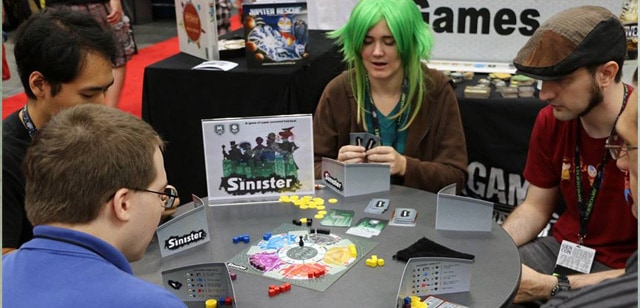
“I do look at contests as a chance for marketing that you wouldn’t normally get- win or not.”
– Meghan McGinley, 2013 Cards Against Humanity Tabletop Deathmatch Finalist, creator of Pack the Pack
Contests attract attention – something invaluable for otherwise obscure independent designers. Many contest rewards have a promotional element, too:
- One of the Game Crafter’s Co-Op Design Challenge contest prizes was a review from The Gamers’ Table of Jupiter Deep.
- Our connection with Father Geek in the Steampunk Challenge led to three reviews of Whirling Derby’s self-published titles: Rig, Zerpang! and Jupiter Deep.
- We have had opportunities with The Game Crafter and Cards Against Humanity to demo at GenCon and PAX, high-traffic conventions we would have never been able to afford otherwise.
- We’ve been on convention panels to talk about our games and experiences.
And getting a game to a presentable state for a contest will nudge you closer into making a Kickstarter or a publisher demo a reality. You’ll be getting deep and critical feedback from judges who have been there before, which often translates into support later when you’re ready to launch a Kickstarter.
CONTESTS ARE THE BEGINNING OF A BIGGER JOURNEY
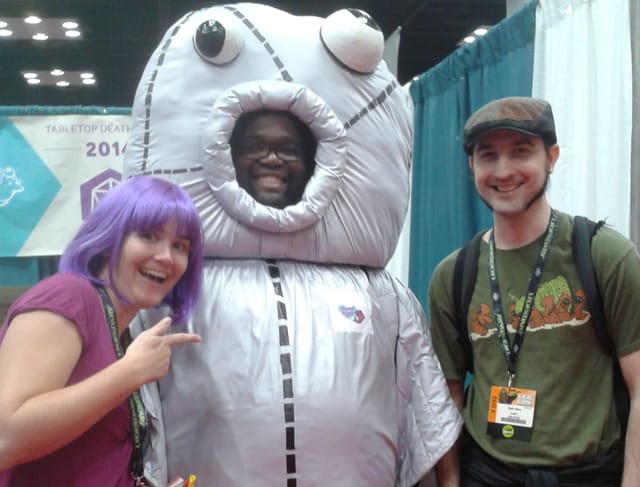
“Most good things in life come to those with gumption. Applying and following through on a contest takes gumption.”
– Eduardo Baraf, 2014 Cards Against Humanity Tabletop Deathmatch Finalist, co-creator of The Siblings Trouble
Even contest winners (like Marcus in the Discount Salmon costume up there) will tell you that contests shouldn’t be your first or last stop in getting your game published. There’s a few reasons for this:
- You have zero control over whether the judges will like your game. If you’re entering a contest with a lot of other people, screening often happens by your pitch/description alone, so they might not even see your game either. (Pro tip for winning contests: write a good pitch.)
- Even if you win, the funds you get may not cover the costs of printing. In the case of Penny Press, they still needed to partner with a publisher and run a Kickstarter.
- Fish costumes don’t grow on trees. Creative self-promotion will still play a huge role in the success of your game, and even though you may get some good opportunities, making the most of them is going to fall on you.
- Life happens. You can really lose momentum when you’re in “let’s wait and see if I won” mode, and work/school/family can guide you back into a place where you don’t make the time for improving your game anymore.
THE TAKEAWAY
DO enter contests, but ALSO keep creating and improving. Work on that game, or other games. Plan some marketing efforts for an upcoming Kickstarter and get your game in front of reviewers and publishers. Go to meetups and continue to get feedback from playtesters.
And network with the other people who entered! Get excited about their game, and they’ll respond in kind and might be your supporters and advocates with future games.
Whether you win or lose, your efforts will give you strong options to keep moving forward. But you have to take the initiative and follow through.
Itching to get started in a contest? Check out Time Challenge Game Crafter Contest, judged by the League’s own Mark and Christina Major!

